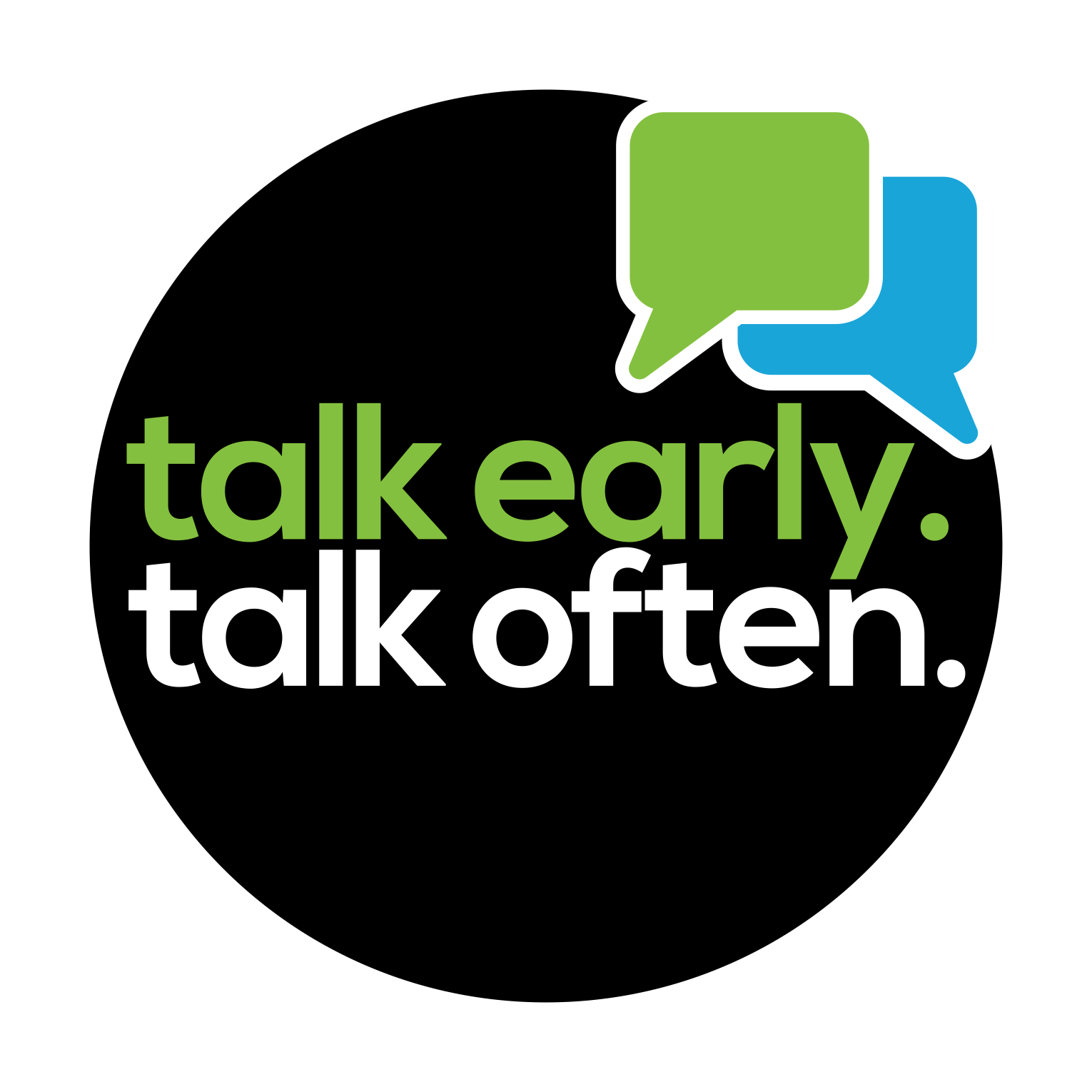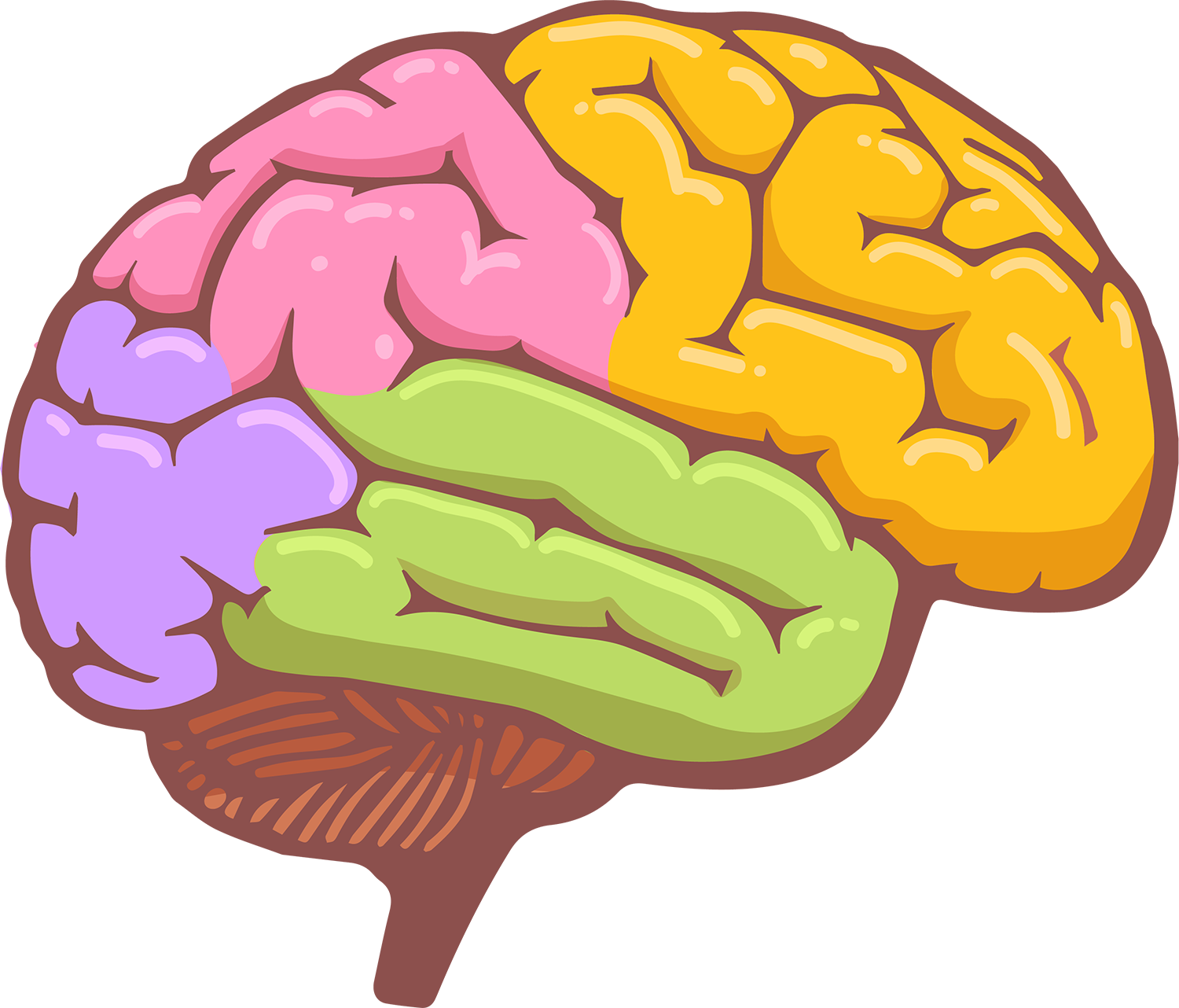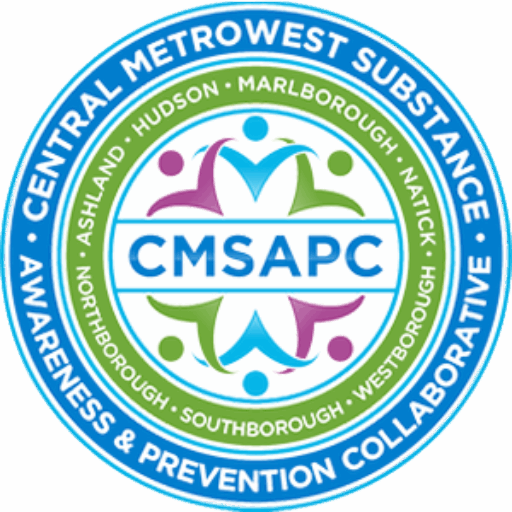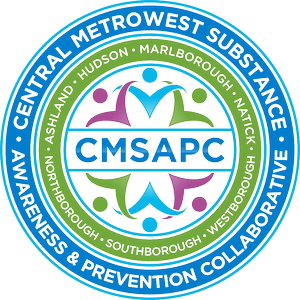Talk Early. Talk Often.
Parent & Youth Pledge
Supporting Parents in Ongoing Cannabis Conversations
“Talk Early. Talk Often.” is a regional prevention campaign led by the Central Metrowest Substance Awareness and Prevention Collaborative (CMSAPC). The campaign is designed to support parents and caregivers in having open, honest, and age-appropriate conversations with their children about cannabis use and its impact on youth brain development, mental health, and future opportunities.
The goal is simple: equip families with the tools they need to have ongoing conversations so that young people are better prepared to make healthy, informed decisions. Whether your child is in middle school or approaching graduation, it’s never too early or too late to start the conversation.


Ten Tips for Starting the Conversation
Talking with your teen about cannabis does not have to feel overwhelming. What matters most is creating a calm, open environment where your child feels heard. These ten tips can help parents and caregivers start conversations early, make them meaningful, and keep them going as youth grow.
How to Respond: Keep the Conversation Going
“It’s just weed. It’s natural.”
You can say:
“A lot of things are natural, but that doesn’t always mean they’re safe, especially for your brain. Your brain is still developing until about 25, and using cannabis while it’s growing can cause real problems with memory, focus, and motivation.”
“It’s just a plant.”
You can say:
“That’s true, it does come from a plant. But not everything that comes from a plant is safe, especially for young people. Cannabis today is much stronger than it used to be, and using it while your brain is still developing can cause long-term issues with memory, motivation, and even mental health.”
“Everybody is doing it.”
You can say:
“It might feel that way, but actually, most kids your age aren’t using cannabis. I can show you some real numbers if you want. Either way, just because something is common doesn’t make it safe or right for you. I care about your health and want you to have every opportunity to succeed.”
“I’m just trying it once.”
You can say:
“I get that it might seem harmless to try something once, but even trying cannabis can affect your brain in ways you might not feel right away. Sometimes one-time use leads to more frequent use, especially if you’re using it to cope with stress or pressure. I want to help you find safer ways to deal with those feelings.”
“It helps with my anxiety or stress.”
You can say:
“I know it might feel like it helps in the moment, but using cannabis to cope can actually make anxiety worse over time, especially for young people. Let’s talk about some healthier ways to manage stress that won’t have long-term effects on your mental health.”
“You used it when you were younger.”
You can say:
“You’re right, I did, and I’ve learned a lot since then. What we know now about how cannabis affects developing brains is very different from what people understood back then. My job now is to make sure you have all the facts so you can make smart choices.”
“Would you rather I drink alcohol?”
You can say:
“Neither one is a good option for your health right now. Both can be harmful to your brain while it’s still developing. I’m not here to punish you, I’m here to protect you and make sure you have the best chance at staying healthy and reaching your goals.”
“It’s legal now, so it must be fine.”
You can say:
“Cannabis may be legal for adults over 21, but that doesn’t mean it’s safe for teens. Just like alcohol or cigarettes, it’s legal, but it is still harmful, especially while your brain is developing. Legal doesn’t always mean healthy. My job is to help you stay safe and make decisions that protect your future.”
Myths vs. Facts About Youth Cannabis Use
Myth #1
“Cannabis Isn’t Addictive.”
Fact: While not everyone who uses cannabis becomes addicted, 1 in 6 teens who use cannabis will develop a cannabis use disorder. According to the Centers for Disease Control and Prevention (CDC), teens are especially at risk because their brains are still developing.
Myth #2
“It’s Just Weed. It’s Not as Strong as Other Drugs.”
Fact: Cannabis is much more potent today than it was even a decade ago. According to the National Institute on Drug Abuse (NIDA), the average THC concentration in cannabis products has increased from around 4% in the 1990s to over 15% in recent years, with some concentrates exceeding 90% THC.
Myth #3
Fact: While both substances carry risks, cannabis use during adolescence is strongly linked to impaired brain development, learning, and memory. According to Harvard Medical School, early cannabis use can lead to long-term changes in brain function, especially in areas related to decision-making and impulse control.
Myth #4
“Cannabis Helps With Anxiety and Stress.”
Fact: Some people report short-term relief, but regular cannabis use has been associated with increased risk of anxiety, depression, and even psychosis, especially in adolescents. The National Academies of Sciences found “substantial evidence” linking cannabis use to the development of mental health disorders, particularly among frequent users.
Myth #5
“Everyone is Doing It.”
Fact: Most teens are not using cannabis. According to the 2023 MetroWest Adolescent Health Survey, about 83% of high school students in the region reported not using marijuana in the past 30 days, proving that the perception of widespread use is often exaggerated.
How Cannabis Affects the Teenage Brain
Different parts of the brain control memory, judgment, coordination, and emotions — cannabis can disrupt these areas, especially since the teen brain is still developing.

Prefrontal Cortex
Role: Decision-making, impulse control, and planning
Cannabis Impact: THC can interfere with this region’s development, making it harder for teens to regulate behavior and make smart choices.
Why It Matters: This area keeps maturing until about age 25.
Hippocampus
Role: Memory and learning
Cannabis Impact: Regular cannabis use in teens can disrupt memory formation and make it harder to retain new information — especially in school.
Why It Matters: The earlier cannabis use begins, the more long-term memory may be affected.
Amygdala
Role: Emotions and stress response
Cannabis Impact: THC can heighten feelings of anxiety or paranoia in some people.
Why It Matters: Adolescents already experience strong emotions — cannabis may make it harder to cope in healthy ways.
Cerebellum
Role: Coordination, balance, and motor control
Cannabis Impact: THC slows reaction time and impairs coordination.
Why It Matters: This can impact physical activities like driving, biking, or playing sports.
Nucleus Accumbens
Role: Motivation and reward
Cannabis Impact: THC overstimulates this part of the brain, which can alter natural reward processing.
Why It Matters: This can increase the risk of addiction and make it harder to feel motivated without substances.
nnabis use begins, the more long-term memory may be affected.

